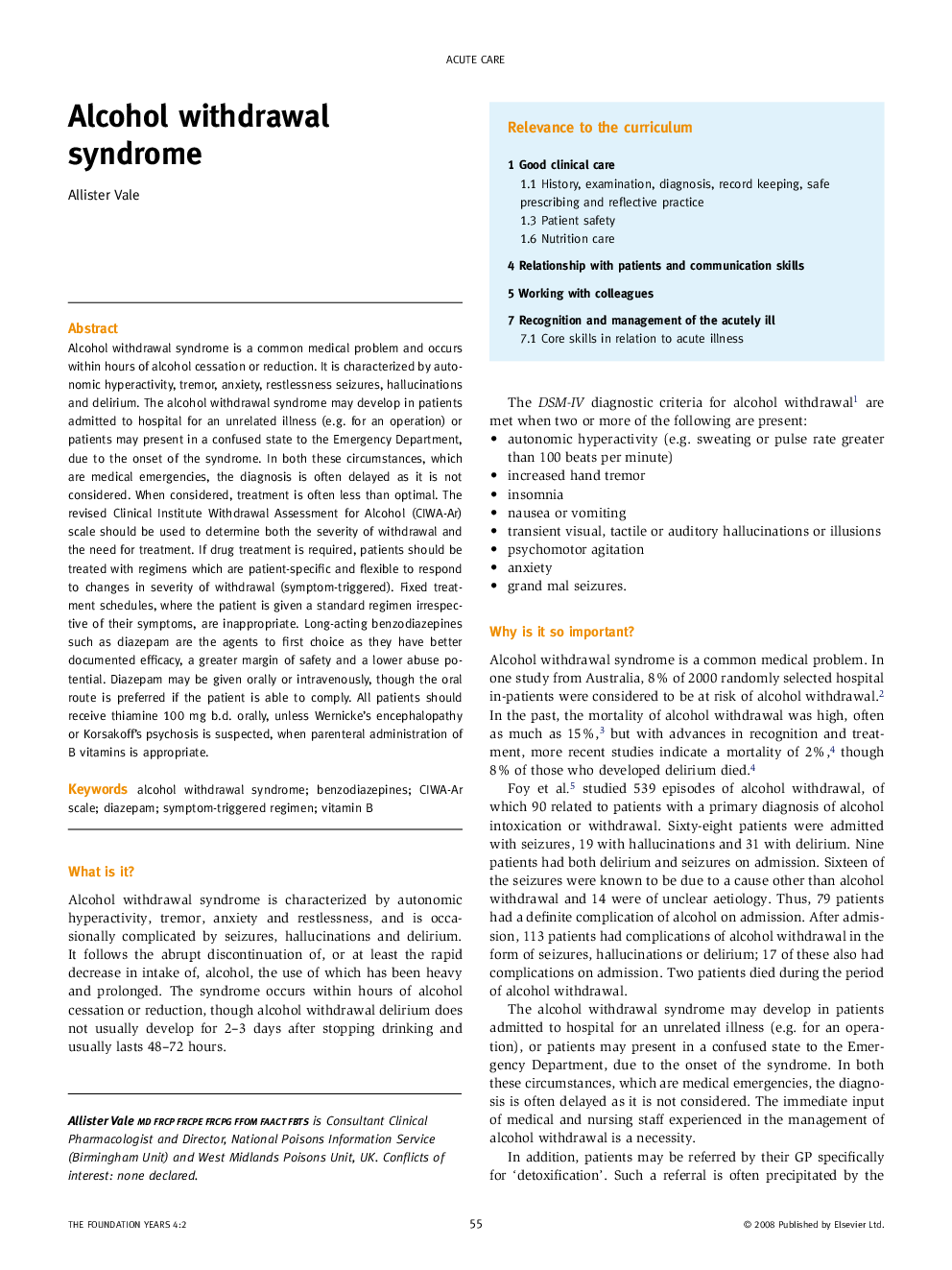| کد مقاله | کد نشریه | سال انتشار | مقاله انگلیسی | نسخه تمام متن |
|---|---|---|---|---|
| 1072865 | 949759 | 2008 | 4 صفحه PDF | دانلود رایگان |

Alcohol withdrawal syndrome is a common medical problem and occurs within hours of alcohol cessation or reduction. It is characterized by autonomic hyperactivity, tremor, anxiety, restlessness seizures, hallucinations and delirium. The alcohol withdrawal syndrome may develop in patients admitted to hospital for an unrelated illness (e.g. for an operation) or patients may present in a confused state to the Emergency Department, due to the onset of the syndrome. In both these circumstances, which are medical emergencies, the diagnosis is often delayed as it is not considered. When considered, treatment is often less than optimal. The revised Clinical Institute Withdrawal Assessment for Alcohol (CIWA-Ar) scale should be used to determine both the severity of withdrawal and the need for treatment. If drug treatment is required, patients should be treated with regimens which are patient-specific and flexible to respond to changes in severity of withdrawal (symptom-triggered). Fixed treatment schedules, where the patient is given a standard regimen irrespective of their symptoms, are inappropriate. Long-acting benzodiazepines such as diazepam are the agents to first choice as they have better documented efficacy, a greater margin of safety and a lower abuse potential. Diazepam may be given orally or intravenously, though the oral route is preferred if the patient is able to comply. All patients should receive thiamine 100 mg b.d. orally, unless Wernicke’s encephalopathy or Korsakoff’s psychosis is suspected, when parenteral administration of B vitamins is appropriate.
Journal: The Foundation Years - Volume 4, Issue 2, April 2008, Pages 55–58